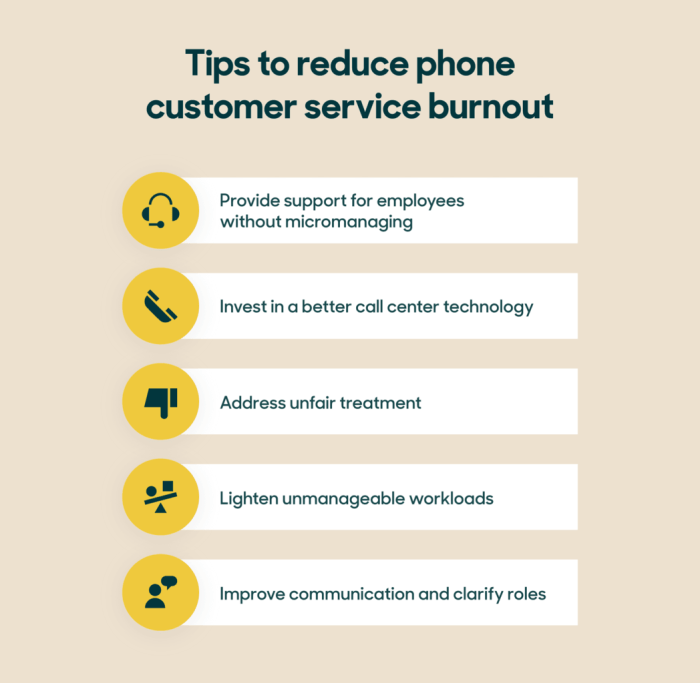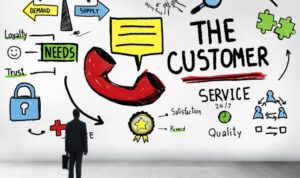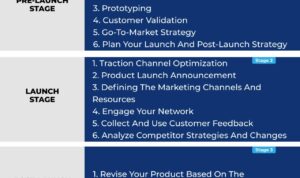Customer Success Tips dives into the essential strategies and practices for businesses to excel in building strong customer relationships and enhancing loyalty. From personalized interactions to team management, this guide covers it all in a fresh and engaging way.
Importance of Customer Success

Customer success is crucial for business growth as it focuses on ensuring that customers achieve their desired outcomes while using the product or service. By actively engaging with customers and helping them overcome challenges, businesses can build long-term relationships, increase customer loyalty, and drive revenue growth.
Examples of Companies Excelling in Customer Success
- HubSpot: HubSpot provides extensive training, resources, and support to help customers succeed with their inbound marketing platform.
- Salesforce: Salesforce has a dedicated customer success team that works closely with customers to ensure they are getting the most out of the CRM software.
- Zappos: Zappos is known for its exceptional customer service, going above and beyond to ensure customer satisfaction and loyalty.
Impact of Customer Success on Customer Loyalty and Retention
Customer success plays a significant role in enhancing customer loyalty and retention. When customers feel supported and valued, they are more likely to continue using a product or service and recommend it to others. By proactively addressing customer needs and providing personalized solutions, businesses can create a strong bond with their customers and reduce churn rates.
Key Metrics Used to Measure Customer Success
- Net Promoter Score (NPS): Measures customer loyalty and likelihood to recommend the product/service to others.
- Customer Satisfaction Score (CSAT): Assesses customer satisfaction levels based on a specific interaction or experience.
- Retention Rate: Indicates the percentage of customers who continue to use the product/service over a specific period.
Strategies for Effective Customer Success: Customer Success Tips
Personalized customer interactions are essential for effective customer success. By understanding each customer’s unique needs and preferences, businesses can tailor their approach to provide a more personalized experience. This can lead to increased customer satisfaction, loyalty, and retention.
Importance of Personalized Customer Interactions, Customer Success Tips
- Builds strong relationships: Personalization shows customers that you value them as individuals, leading to stronger connections.
- Increases customer satisfaction: Meeting personalized needs results in happier customers who are more likely to stay loyal.
- Boosts retention rates: Personalized interactions can increase customer retention by making them feel understood and appreciated.
Tips for Creating a Proactive Customer Success Strategy
- Anticipate customer needs: Stay ahead by identifying potential issues before they arise and proactively addressing them.
- Educate customers: Provide resources, training, and guidance to help customers maximize the value of your product or service.
- Regular communication: Keep in touch with customers to ensure they are satisfied and address any concerns promptly.
Comparing Reactive vs. Proactive Customer Success Approaches
- Reactive approach: Waiting for customer issues to arise before addressing them can lead to lower customer satisfaction and retention rates.
- Proactive approach: Anticipating customer needs and resolving issues before they escalate can result in higher customer satisfaction and loyalty.
Role of Technology in Enhancing Customer Success Efforts
- Customer Relationship Management (CRM) software: Helps businesses track customer interactions, preferences, and history to provide more personalized service.
- Automation tools: Streamline processes and communication to ensure timely responses and proactive engagement with customers.
- Data analytics: Allows businesses to analyze customer behavior and feedback to continuously improve their customer success strategies.
Building Strong Customer Relationships

Building strong relationships with customers is crucial for the success of any business. By establishing trust, effective communication, and actively seeking feedback, businesses can create lasting connections with their customers. Let’s dive into some best practices for building strong customer relationships.
Establishing Trust with Customers
- Be transparent and honest in all your interactions with customers.
- Deliver on your promises and exceed expectations whenever possible.
- Show empathy and understanding towards customer concerns and issues.
- Consistently provide high-quality products or services to build credibility.
Effective Communication Strategies
- Listen actively to customer feedback and address their needs promptly.
- Use clear and concise language to avoid misunderstandings.
- Personalize interactions to make customers feel valued and appreciated.
- Utilize multiple communication channels to reach customers effectively.
Successful Customer Relationship Management Examples
- Amazon’s personalized product recommendations based on past purchases.
- Zappos’ legendary customer service and hassle-free return policy.
- Apple’s loyal customer base due to their innovative products and seamless user experience.
- Salesforce’s customer success platform that helps businesses manage and improve customer relationships.
Impact of Customer Feedback on Relationships
- Customer feedback provides valuable insights into areas for improvement and helps businesses tailor their offerings to meet customer needs.
- Acting on customer feedback shows that you value their opinions and are committed to their satisfaction.
- Continuous feedback loops foster trust and loyalty, leading to long-term customer relationships.
- Ignoring or dismissing customer feedback can damage relationships and drive customers away.
Customer Success Team Management
To effectively manage a customer success team, certain essential skills are required to ensure customer satisfaction and retention. Training and empowering customer success representatives are crucial aspects of team management, along with fostering collaboration and knowledge sharing. Successful customer success team structures can serve as examples for implementing best practices in managing a customer success team.
Essential Skills for a Customer Success Team
- Strong communication skills to effectively interact with customers and team members.
- Empathy and understanding to address customer needs and concerns.
- Problem-solving abilities to resolve customer issues efficiently.
- Technical proficiency to navigate customer success platforms and tools.
Training and Empowering Customer Success Representatives
- Provide comprehensive product training to ensure representatives have in-depth knowledge.
- Empower representatives to make decisions autonomously to enhance customer experience.
- Offer continuous learning opportunities to keep representatives updated on industry trends.
- Encourage feedback and open communication to foster a culture of growth and improvement.
Strategies for Team Collaboration and Knowledge Sharing
- Implement regular team meetings to discuss challenges, share insights, and align goals.
- Utilize collaboration tools to facilitate communication and document sharing among team members.
- Encourage cross-functional collaboration to leverage diverse expertise within the team.
- Create a knowledge-sharing culture where team members freely exchange ideas and best practices.
Examples of Successful Customer Success Team Structures
- HubSpot’s customer success team structure focuses on specialized roles for onboarding, support, and account management.
- Salesforce organizes its customer success team based on customer segments to provide personalized service.
- Zendesk’s customer success team structure emphasizes a customer-centric approach with dedicated customer success managers.
- Gainsight implements a tiered customer success model with proactive engagement strategies for different customer tiers.












